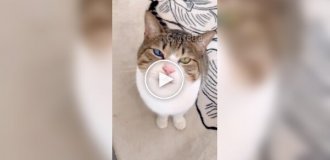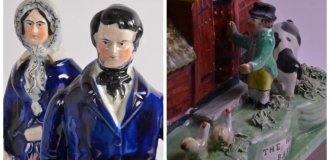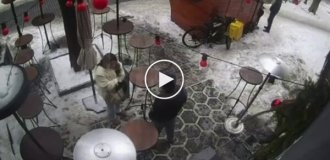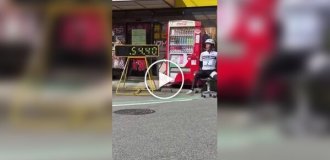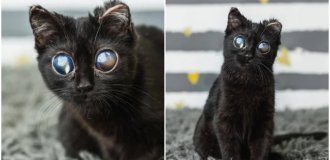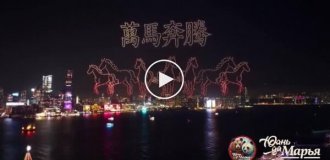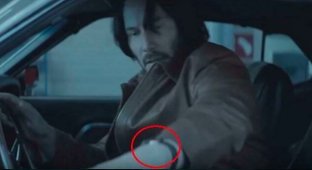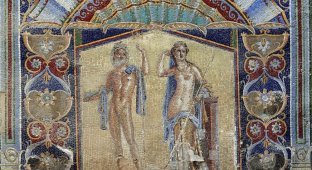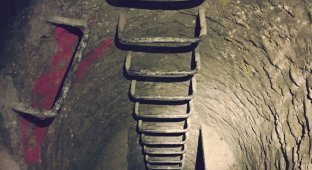Humpty Dumpty: how did a huge humanoid egg end up on the wall, and who put it there? (10 photos)
Humpty Dumpty, who sat on the wall, fell from there in a sleepy state and became a problem for a huge number of people, is familiar to almost everyone from a children's poem. 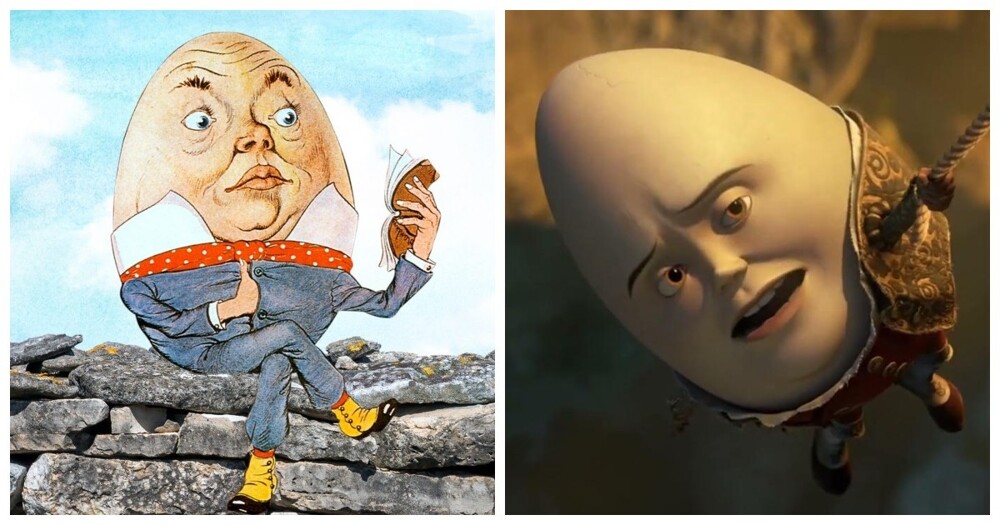
The anthropomorphic creature was first mentioned in literature at the end of the 18th century, and the egg-shaped hero became widely known thanks to the 1871 book by the English writer Lewis Carroll, “Alice Through the Looking Glass.” 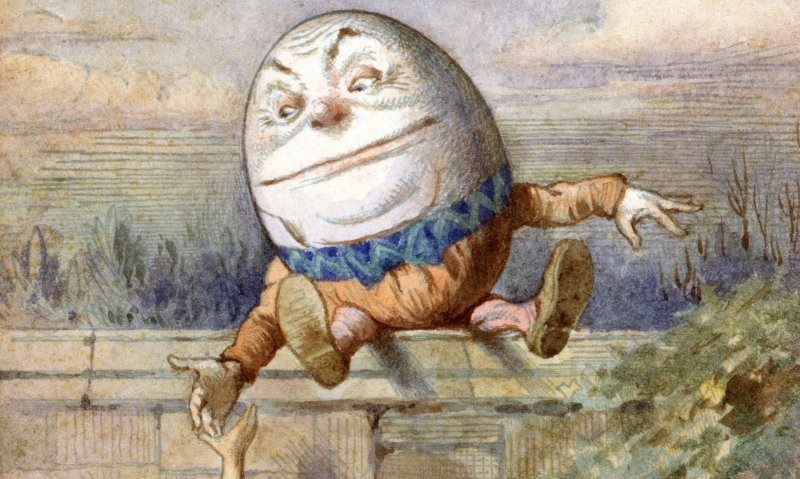
But behind the apparent simplicity of the nursery rhyme, there is something else hidden - something deeper and more significant, the solution of which historians have been struggling with for a long time.
Why is Humpty Dumpty considered a giant living egg? The poem doesn't talk about this. Why is he associated with the king, and why is the king trying to resuscitate him? And even with the involvement of horses.
Origin of Humpty Dumpty 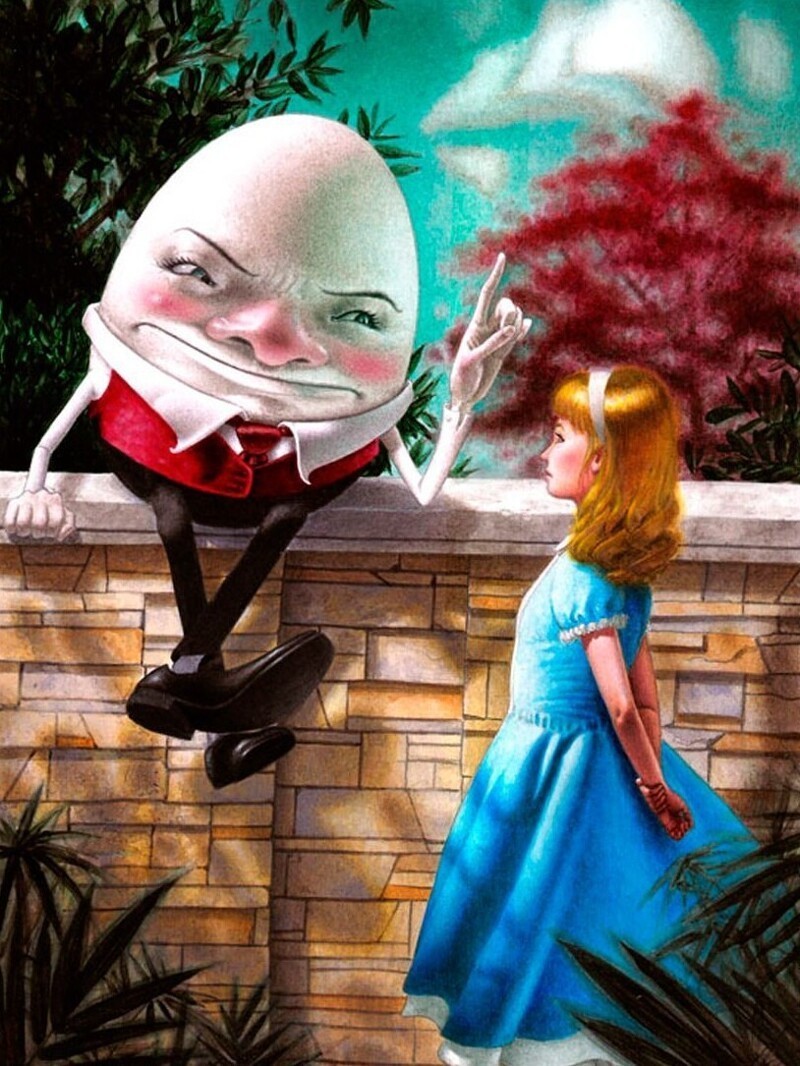
A well-known nursery rhyme today is about a character named Humpty Dumpty who falls off a wall and cannot get back to his former self despite outside efforts. The simplicity of the rhyme hides its complex history and the many meanings that have been attributed to it over the centuries.
In the original poems, Humpty Dumpty is not explicitly described as an egg. This was subsequently popularized in a book by Lewis Carroll. The earliest recorded versions of the rhyme date back to the late 18th century, but its origins are most likely much earlier. 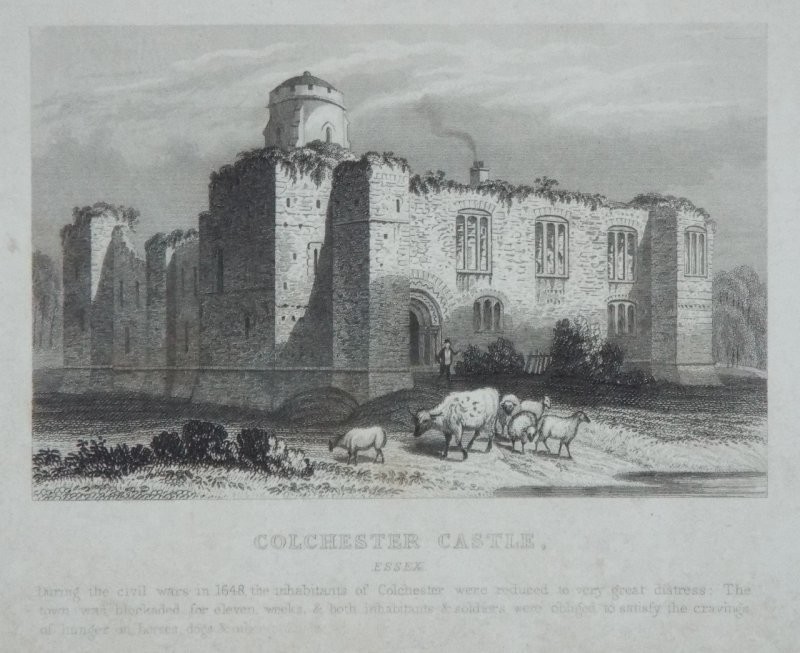
Colchester Castle
One of the most compelling theories about the origin of Humpty Dumpty suggests that it was not a person or an anthropomorphic egg, but a large siege cannon used during the English Civil War (1642-1651). According to this theory, the cannon was installed on the walls of Colchester, a city besieged in 1648. The king at that time was Charles I. 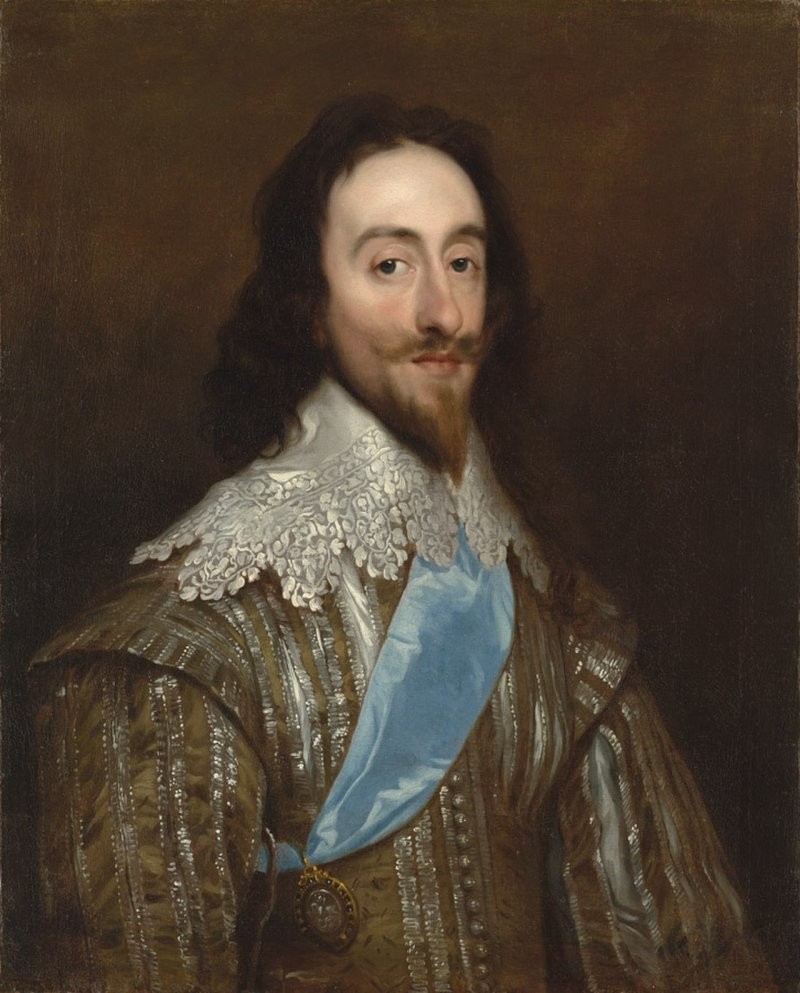
Charles I
When the wall was damaged, the cannon fell and the king's men were unable to return it to its place, leading to the fall of the city. This story, although not conclusively proven, is supported by some historical evidence and gives the nursery rhyme a different meaning, transforming Humpty Dumpty from a funny character into a symbol of war and loss.
A giant cannon mounted on the city walls would be both a powerful defensive weapon for the city and an obvious target. Even the horses trying in vain to retrieve the cannon from where it fell makes sense in this context. 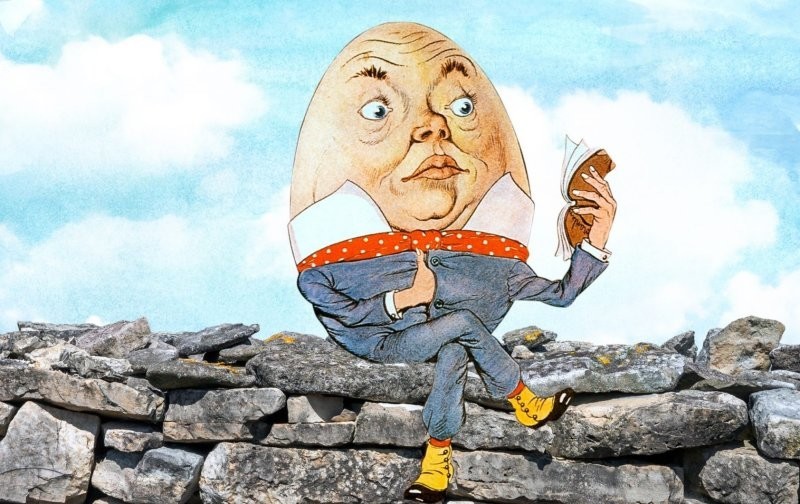
Humpty Dumpty's transformation into an egg is attributed to Lewis Carroll, whose description in Alice Through the Looking Glass firmly established the character's egg-like appearance. Carroll's whimsical and fantasy fiction deliberately played with and reinterpreted existing narratives, and his illustration of Humpty Dumpty as an egg with a face, arms, and legs conversing with Alice became a defining image for generations of readers.
Others still interpret the rhyme as a riddle, the answer to which is the word “egg.” This theory predates Carroll's interpretation, but has no serious historical evidence. 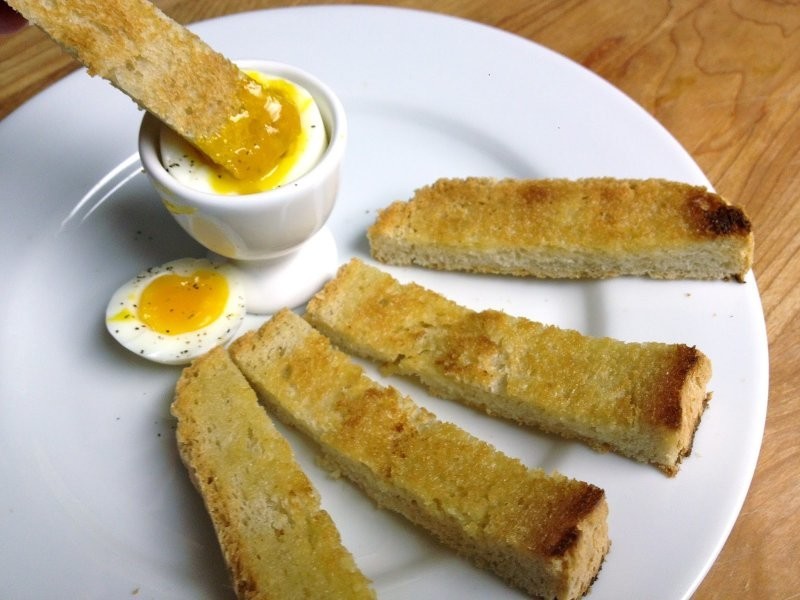
Egg soldier - egg soldiers
This version faces the same problems as the previous one. Although there are some logical subtle parallels, for example, toast cut into rectangles for dipping in a soft-boiled egg is called toy soldiers. 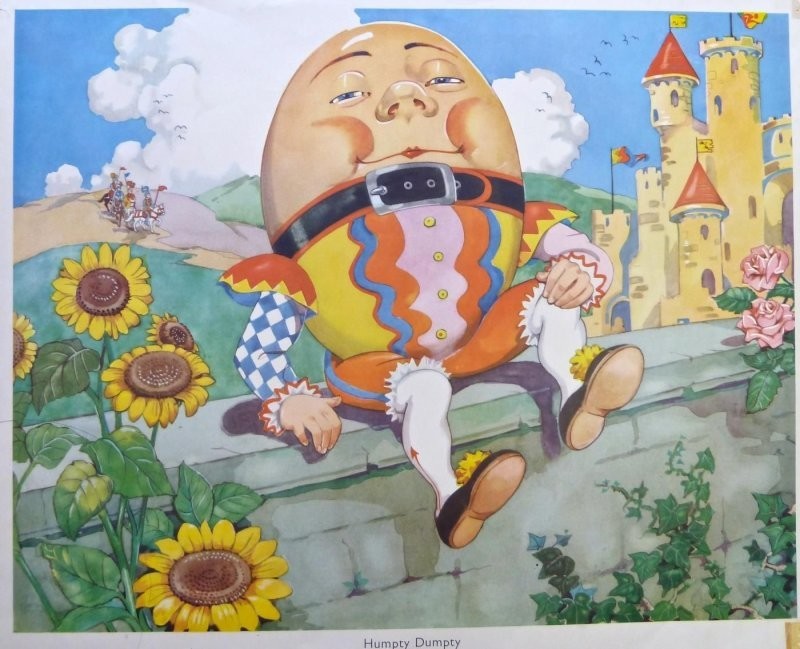
According to other versions, the fall of Humpty Dumpty is a symbol of the fall of the powerful, a warning about pride and arrogance leading to an inevitable end. This interpretation allows us to consider the poem as a political satire, reflecting the instability and unpredictability of royal and political power.
Ultimately, Humpty Dumpty's true origins and identity may never be fully revealed. The transition from a possible historical or allegorical figure to the fictional character of the egg highlights the fluidity of folklore and how stories evolve over time to suit the cultural and social context in which they are retold. 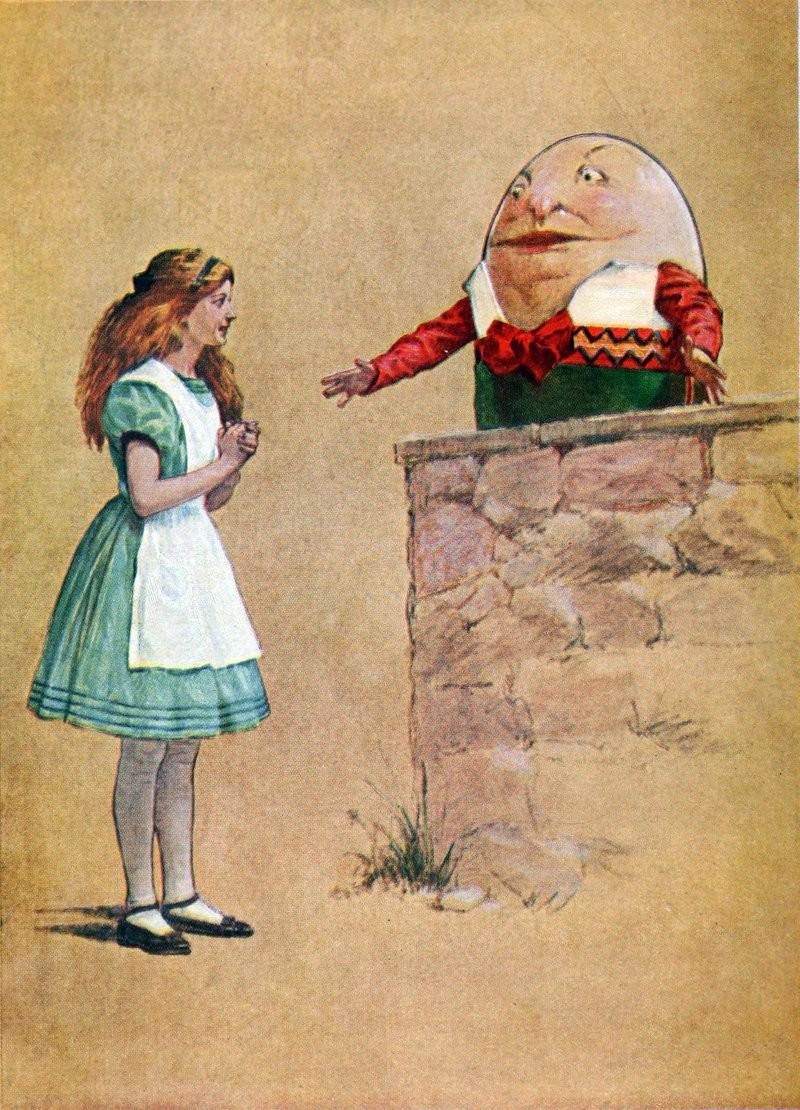
Lewis Carroll's contribution to the story of Humpty Dumpty is difficult to overestimate. And it serves as a clear example of how literature can reinterpret and perpetuate folklore, anchoring it in the collective consciousness in new and unexpected forms. Perhaps he embellished the story and thereby distanced it from its origins, but at the same time enriched it. 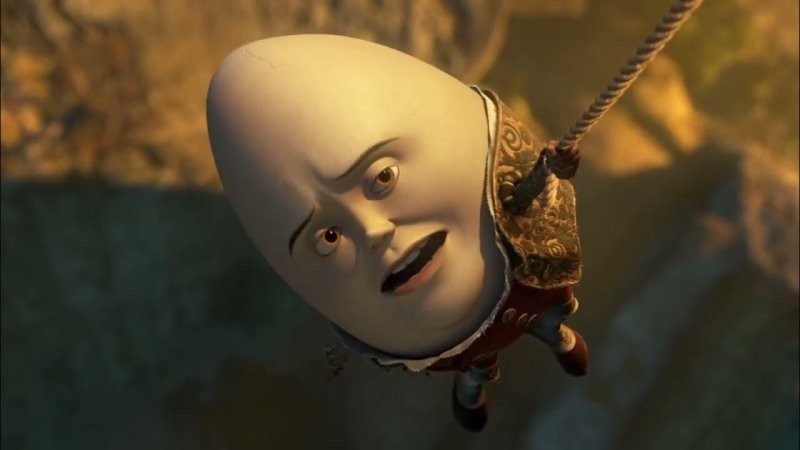
Still from the cartoon "Puss in Boots" 2011
The origins of Humpty Dumpty, whether it is a siege cannon, a fallen king, or a warning about arrogance, speaks to the human desire to search for meaning and history behind seemingly simple and harmless things. By passing on this nursery rhyme to future generations, people not only pass on a part of their cultural heritage to their descendants, but also make them think about the riddles and stories hidden in these poems. Which may someday be solved.



